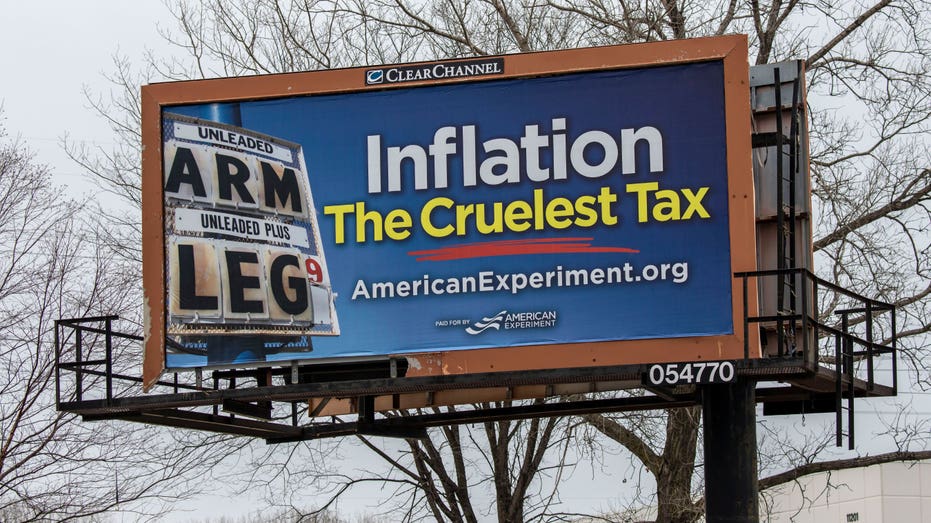Sky-high inflation could lead to higher taxes for millions of Americans
'Bracket creep' pushes taxpayers into higher income brackets, even though their purchasing power is unchanged
Inflation is ‘killing’ the consumer: Expert
Kaltbaum Capital Management Gary Kaltbaum discusses the markets, Federal Reserve and inflation.
Millions of Americans could be in store for higher taxes as a result of the hottest inflation in 40 years.
That's because of a phenomenon known as "bracket creep," which happens when taxpayers are pushed into higher-income brackets even though their purchasing power is essentially unchanged due to steeper prices for most goods.
Although the IRS adjusts federal income taxes for inflation, a recent analysis published by the Tax Foundation shows that 15 states fail to account for inflation when drawing the brackets for taxes on wages and income. Another 18 states do not index personal exemption tax to inflation.
HOW THE FEDERAL RESERVE MISSED THE MARK ON SURGING INFLATION
Altogether, 22 states have at least "one major unindexed provision," which could mean higher taxes for millions of taxpayers who are already confronting the steepest inflation since 1981. The government reported last month that the consumer price index, which measures a basket of everyday goods including gas, cars and food, rose 8.5% in March from the year-ago period and 1.2% on a monthly basis.

Billboard on the cruelties of inflation in Coon Rapids, Minnesota. (Universal Images Group via Getty Images / Getty Images)
Essentially, when tax brackets, the standard deduction or personal exemptions are not adjusted for inflation, that money loses value due to the higher prices that consumers are paying for things like food, rent and gasoline, according to the analysis, authored by the Tax Foundation's vice president of state projects, Jared Walczak.
"Bracket creep occurs when more of a person’s income is in higher tax brackets because of inflation rather than higher real earnings," Walczak said.
The so-called "hidden tax" is most likely to affect residents living in states where taxes are not indexed to inflation, meaning there's no automatic cost-of-living adjustment built into the tax provision in order to keep pace with inflation. States with an income tax that is not indexed to inflation are: Alabama, Connecticut, Delaware, Georgia, Hawaii, Kansas, Louisiana, Maryland, Mississippi, New Jersey, New Mexico, New York and Oklahoma.
For instance, a hypothetical Delaware resident who earned $60,000 in taxable income in 2019 and now makes $64,000 has not actually seen an increase in real income; the $64,000 she earns today has about the same purchasing power as the $60,000 she made in 2019, Walczak wrote.

People shop for groceries at a supermarket in Glendale, California, Jan. 12, 2022. (Robyn Beck/AFP via Getty Images) / Getty Images)
On top of that, because her state's income tax brackets are not indexed to inflation, that higher salary pushes her into a higher property tax rate (6.6%), whereas before she was paying a rate of 5.5%. Though the resident's purchasing power is unchanged, her tax bill rises by $264.
"The absence or insufficiency of cost-of-living adjustments in many state tax codes is always an issue, as it constitutes an unlegislated tax increase every year, cutting into wage growth and reducing return on investment," Walczak wrote. "During a period of higher inflation, however, the impact is particularly significant."
GET FOX BUSINESS ON THE GO BY CLICKING HERE
The analysis comes just one day before the Labor Department releases the latest consumer price index reading, which is expected to be another doozy. Economists expect the gauge to climb 8.1%, down slightly from March's recording of 8.5%.





















